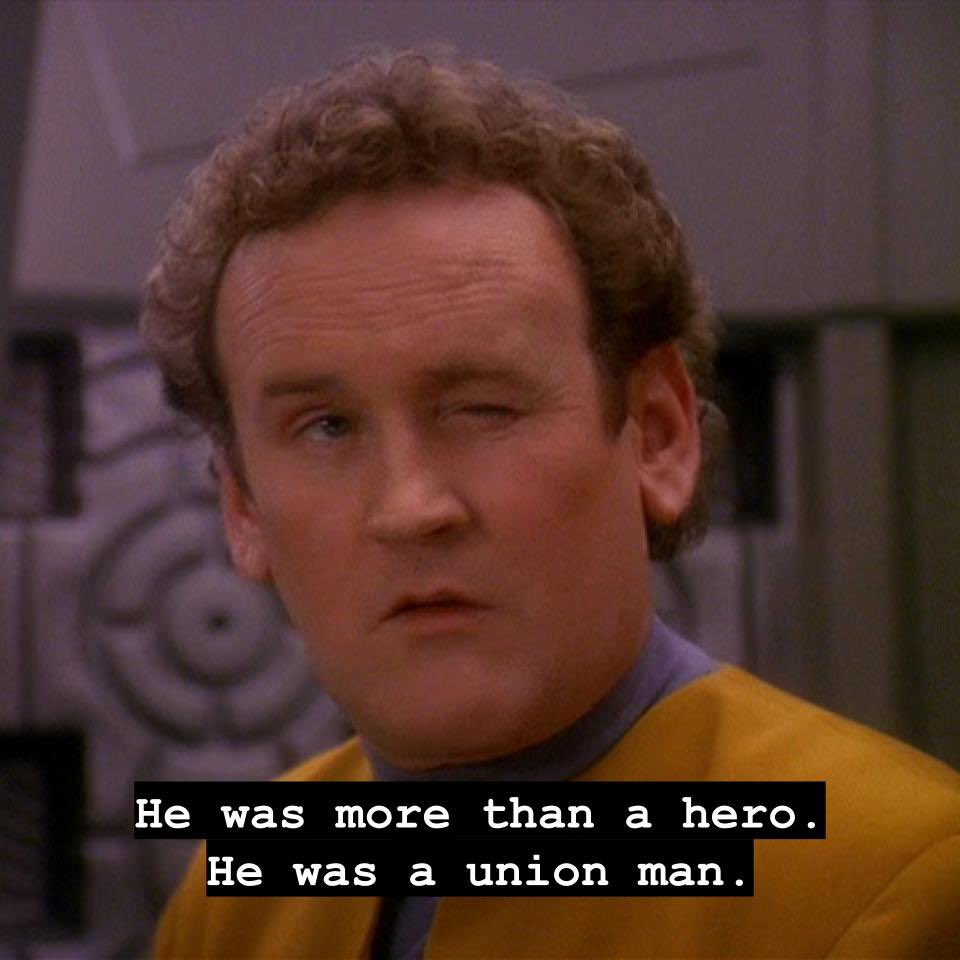This post is not about the anime and related works themselves, but the game as an element of the fictional world. Spoilers ahead.
Spoilers
There’s the obvious: full immersion and “you die in real life”, but I feel like there’s more to the game that sets it apart.
First and foremost, progression in SAO was collective. For example, once a floor boss was beaten by anyone, a new floor would be unlocked for all players. This stands in contrast to existing MMOs, where players progress individually and interactions between them often feel optional. Of course, cooperative multiplayer games exist, but I can’t recall a single one where this concept would be taken to a larger scale.
Secondly, since not all players needed to beat bosses, others could specialize. In most if not all RPGs there’s a concept of classes and skill that impact how you beat the main story line and what side content you encounter, but in SAO you could make side aspects your main aspect, like the smiths we’ve seen in the series. I’ve found similar quality in multiplayer Factorio, a sandbox game of automation and tower-defense-like fighting, where oftentimes some players would focus on base building, while the others went out for combat.
It is mentioned in the series that quests are automatically created by the main system (what we would call procedural generation). While there were certainly hard-coded elements, infinite variety of procedural content is an interesting aspect, especially in times when almost all information about popular games can be looked up on numerous wikis. Starbound is a game that made heavy use of procedural planets, weapons, enemies and quests. For me similarities eventually became apparent and items lost the freshness, however the quality of being unable to perfectly min-max everything remained and I appreciated it.
Is there something else that you think SAO had, that existing games don’t? Do you know other games that experiment with these concepts?
SAO was classless, with players leveling up individual skills instead of their character as a whole (though of course there was also a player level). ESO is pretty similar in that regard, but RuneScape might be closer, especially since we know SAO has serious crafters. The biggest showpiece for SAO seemed to be the complex and expansive skill system. Not only did Kirito have his sword skills, and dual wielding, he also had alchemy and fishing skills, and some kind of thrown hunting needle.
It also has open-world housing, which is super rare. The only game I know of with something similar is Archeage, but AA is PvP focused (and I haven’t played it in like 8 years). Probably works a lot better in a game where you know the exact number of players, and it can’t increase lol
Crafted gear was better than drops, which is a in-game economic choice by the developer. It’s hard to have serious crafters without that, so it made sense for the story. I don’t have much personal experience with games where that is the case, but it’s usually pretty popular.
Probably the thing that really set SAO apart though, and something I don’t think we’ll ever see in real games, was the fact that floors were only cleared once, so the game was less an MMO grind, and more an organized campaign by the hardcore players. The mega-dungeons that had to be mapped by players worked well in this system, but would probably be annoying in an actual game. At its heart, it was a single player RPG created for Kirito, because it had to be for the plot. A lot of it’s “systems” can’t really translate to real life
Right now we have music festivals and large ren faires where people go for a week to enjoy something together. Imagine if some time in the future we could slow our brains perception and achieve am SAO-like experience for people in a week at a festival-like environment!!! What an interesting experience that would be
Star Wars Galaxies and Ultima Online had open world housing as well, I believe.
Star Wars: Galaxies had a killer open world housing system! I loved it and nothing else I’ve played has even come close to what SW:G had. Plus, after a bit of patching they included a system where you can create a city that shows up on the map, including shuttle/fast travel points and benefits to locals. Housing wasn’t instanced, so you could build nearly anywhere on the map outside of in-game cities and other players cities. It was truly awesome. Sony Online Entertainment screwed it over again and again and again, and now it’s gone. I played that game for years.
Never played UO but I heard good things.
Both before my time, unfortunately, but I’ve only ever heard good things about them!
The underlying threat of serious consequences changed player behaviour, psychologically.
Today gamers throw themselves into monsters with limited regard for consequences, which changes our perception of the encounters.
I wonder what would happen if number of deaths was a tracked stat that acted as a multiplier for player skills / powers.
If high number of deaths increased your power people would just try to die as often as possible. If it decreased your power you would just have a more extreme divide between the ultra-skilled people who get rewarded and the rest who fall further and further behind. Sort of like MOBAs only more extreme.



